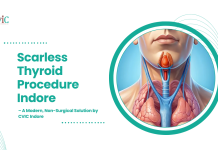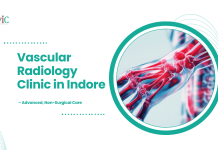Varicose veins are a common issue affecting millions of people worldwide. Characterized by enlarged, twisted veins that often appear on the legs, they can cause discomfort, pain, and cosmetic concerns. Fortunately, advances in medical technology and natural therapies offer multiple treatment options. Whether you’re dealing with mild symptoms or more severe cases, finding the right treatment can relieve discomfort and improve your quality of life.
In this article, we will explore the top 7 most effective treatments for varicose veins to help you find the best solution for your condition. From minimally invasive procedures to lifestyle changes, these treatments can make a significant difference in how you feel and look.
What Causes Varicose Veins?
Varicose veins develop when the valves in your veins malfunction, causing blood to pool and veins to swell. This condition is most common in the legs, where veins work against gravity to return blood to the heart. Several factors contribute to the development of varicose veins, including genetics, age, pregnancy, obesity, and prolonged standing or sitting. Although many people experience them as a cosmetic concern, varicose veins can also cause aching, swelling, and discomfort.
Now, let’s take a closer look at the most effective treatments for varicose veins.
Also Read: Understanding Aortic Aneurysm: Expertise from the Best Brain Aneurysm Doctors in Indore

Effective Treatments for Varicose Veins
1. Endovenous Laser Therapy (EVLT)
One of the most advanced and effective treatments for varicose veins is Endovenous Laser Therapy (EVLT). This minimally invasive procedure uses laser energy to close off the affected veins. A laser fiber is inserted into the vein, where it delivers heat to seal it, effectively rerouting blood through healthier veins.
Advantages of EVLT:
- Minimally invasive with a short recovery period
- Performed under local anesthesia
- Minimal scarring and discomfort
- High success rate
EVLT is a great option for patients with moderate to severe varicose veins and can be performed in a doctor’s office. Most patients experience significant symptom relief and improved appearance after treatment.
2. Sclerotherapy
Sclerotherapy is one of the oldest and most widely used treatments for varicose veins. This procedure involves injecting a solution, typically saline or a chemical agent, directly into the affected veins. The solution irritates the vein lining, causing it to collapse and eventually fade from view.
Key benefits of Sclerotherapy:
- Simple, in-office procedure
- Little to no downtime
- Effective for small and medium-sized varicose veins
- Proven results over decades of use
Sclerotherapy works best for smaller varicose veins or spider veins, and multiple sessions may be needed for full results.
3. Radiofrequency Ablation (RFA)
Radiofrequency Ablation (RFA) is another minimally invasive treatment for varicose veins, similar to EVLT, but instead of lasers, it uses radiofrequency energy. A catheter is inserted into the vein, and heat is applied to close the vein. Once the vein is sealed, the blood is naturally redirected to healthy veins.
Why RFA is effective:
- Minimally invasive with fast recovery
- Can be done in an outpatient setting
- High success rate with minimal complications
- Performed under local anesthesia
RFA is often recommended for larger varicose veins and is known for its effectiveness in relieving pain and improving leg appearance.
Also Read: Find the Best Brain Aneurysm Doctor in Indore at CVIC

4. VenaSeal™ (Vein Glue)
VenaSeal™ is a relatively new and cutting-edge treatment for varicose veins that uses a medical adhesive (vein glue) to close off problematic veins. The adhesive is delivered via a catheter, and the vein is sealed shut, allowing blood to flow through healthier veins.
Benefits of VenaSeal™:
- Quick, outpatient procedure
- No need for compression stockings post-treatment
- Minimally invasive with little to no pain
- Faster recovery than thermal ablation methods
VenaSeal™ is especially suitable for patients who want a quick, effective solution without the need for thermal energy or anesthesia.
5. Ambulatory Phlebectomy
Ambulatory phlebectomy is a surgical procedure used to treat large varicose veins close to the skin’s surface. Tiny incisions are made, and the varicose veins are physically removed. This procedure is usually performed under local anesthesia.
Advantages of ambulatory phlebectomy:
- Highly effective for large, visible veins
- Immediate results with veins being removed during the procedure
- Minimal scarring due to small incisions
- Fast recovery time, usually allowing a return to normal activities within days
This procedure is ideal for patients with bulging veins that have not responded to less invasive treatments.
6. Compression Stockings
One of the most cost-effective and accessible treatments for varicose veins is the use of compression stockings. These specially designed stockings apply pressure to your legs, helping improve blood flow and reduce the swelling and discomfort associated with varicose veins.
How compression stockings help:
- Improve circulation in the legs
- Reduce swelling and discomfort
- Prevent varicose veins from worsening
- Easy to use and available over-the-counter
While compression stockings won’t eliminate varicose veins, they can alleviate symptoms and prevent new veins from forming, making them an excellent first-line treatment for those seeking non-invasive options.
7. Lifestyle Changes and Home Remedies
While medical treatments are often necessary, lifestyle changes and natural remedies can play an essential role in preventing and managing varicose veins. By adopting certain habits, you can relieve symptoms and reduce the risk of new varicose veins developing.
Key lifestyle changes:
- Regular exercise to improve circulation
- Elevating your legs to reduce swelling
- Maintaining a healthy weight to ease pressure on veins
- Avoiding long periods of standing or sitting
Natural remedies such as massage, herbal supplements like horse chestnut extract, and topical treatments like witch hazel can also provide relief for mild symptoms of varicose veins.
When to See a Doctor for Varicose Veins
While many cases of varicose veins are purely cosmetic, others can lead to more serious complications, such as blood clots or ulcers. If your varicose veins are causing severe pain, swelling, or skin changes, it’s crucial to seek medical advice. Your doctor can recommend the best treatment option based on the severity of your condition and your overall health.
Also Read: Unveiling Excellence in Neurological Care: Meet the Top Neuro Doctors in Indore at CVIC

FAQs
What are the most common symptoms of varicose veins?
Common symptoms include swelling, aching legs, itching, and a heavy or throbbing feeling in the legs. In severe cases, ulcers or blood clots can develop.
Can varicose veins go away on their own?
Varicose veins do not go away without treatment. However, symptoms can be managed with lifestyle changes and non-invasive treatments.
Is laser treatment for varicose veins painful?
Laser treatments like EVLT and RFA are minimally invasive and cause little to no pain, with most patients describing only mild discomfort during the procedure.
How long does it take to recover from varicose vein surgery?
Recovery times vary depending on the procedure. Minimally invasive treatments like EVLT and RFA often have quick recovery times, allowing patients to return to normal activities within a few days.
Can pregnancy cause varicose veins?
Yes, pregnancy is a common cause of varicose veins due to increased blood volume and hormonal changes that affect vein walls and valves.
Are natural remedies for varicose veins effective?
Natural remedies, such as herbal supplements and compression stockings, can help alleviate symptoms but typically won’t remove varicose veins. For lasting results, medical treatment is often necessary.
Conclusion
Varicose veins can be uncomfortable and unsightly, but the wide range of effective treatments for varicose veins ensures that relief is within reach. Whether you opt for a minimally invasive procedure like EVLT or choose to manage symptoms with lifestyle changes and compression stockings, taking action can help you say goodbye to the discomfort and improve your vein health. Consult with a healthcare provider to find the treatment that best suits your condition and needs.




